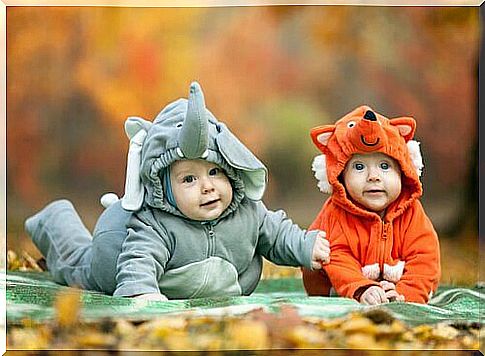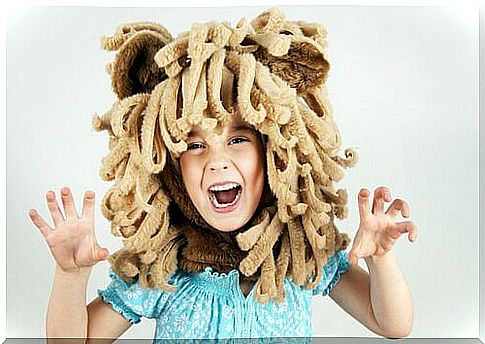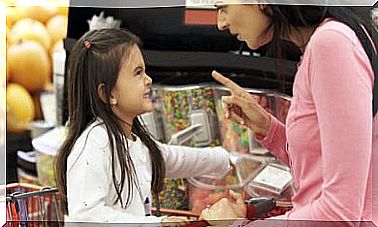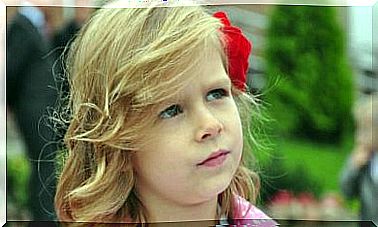Why Do Children Play At Being Animals?

A fundamental step for children to learn about their environment and about life is playing. It is common to see children playing roles of what is known to them ; that is, the father, mother, teacher or television superheroes. However, many parents wonder why children play at being animals.
We must understand that the choices children make when they decide to play a character in their games have a lot to do with their affections, interests and their intention to understand the other. In most cases this is linked to admiration. Let’s better understand why children play at being animals.
The roleplaying of characters
The fact that children play at being someone else or think they are a dog or a cat is one of the most common actions during childhood. Wanting to be someone else is part of the desire to know through experimentation and empathy.
Of course, this is one of the simplest ways to understand and recreate what happens around the child. Thanks to the application of this way of playing, adults can discover the main characteristics of the child’s personality.
Now, playing at being someone else is not an exclusive action for children. There is a wide variety of board games for adults where the aim of fun is to try to represent, in the most faithful way, the character assigned to you.
Furthermore, if we go deeper into the field of psychology, we will find several examples of behaviors, sometimes wrong, linked to imitation.

Why do children play at being animals?
It is clear that playing to imitate people, skills, professions and real or imaginary beings is very attractive to the little ones in the house. But what happens when the choice of the little one is almost exclusively for an animal role?
At first, we must understand that, because of the tenderness that animals inspire, adults are constantly bombarding our children with images, stories, toys and even references about dogs, bears, rabbits, etc.
In fact, some of the first words we teach children are “mommy”, “daddy” and “ow ow!” or ‘pee pee!’ .
This makes sense if we understand how simple it is to repeat onomatopoeias and, in turn, teach the child about the nature that surrounds them.
On the other hand, it is known that, in almost all children’s programs, the main characters are humanized animals who talk, cook, go to work and school.
From this stimulation, it can be inferred that the child idealizes animals in the same way that he idealizes superheroes. For this reason, she wants to recreate what for her are the adventures of beings with whom she feels enormously familiar.
The advantages of playing at being an animal
Another reason a child wants to play at being an animal is because of the freedom that this type of character offers. When children are taught about manners, analogies are made to clutter or dirt and the animals’ attachment to these behaviors.
Children can suddenly feel rigid when they have to obey rules like sitting up straight, not screaming, not touching the floor. Conversely, being able to represent an animal gives them that absolute freedom.

If they’re playing at being a dog or a cat, they can jump and run and stay in contact with the grass. If they play at being a bear, they can get grumpy. In short, it gives them a universe of fun possibilities.
In addition to fun, the advantages of playing with being an animal can be seen in the practice of non-verbal language development. This improvement occurs when you try to communicate as if you were a dog or a cat, which also leads to an increase in cognitive development.
Finally, it is worth clarifying that, although it is clear that the game of pretending to be an animal has multiple benefits for the child’s development, if the child assumes an obsessive attitude and cannot see the difference between reality and fiction in the game, perhaps you must take her to a specialist in psychology, to study her case in a particular way.









